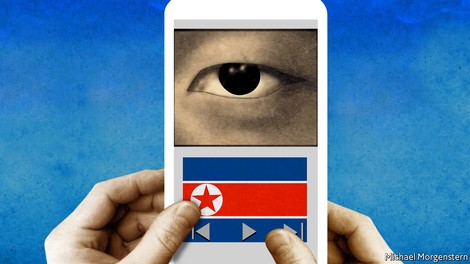Your podcast discovery platform
Curious minds select the most fascinating podcasts from around the world. Discover hand-piqd audio recommendations on your favorite topics.

piqer for: Global finds Technology and society
Prague-based media development worker from Poland with a journalistic background. Previously worked on digital issues in Brussels. Piqs about digital issues, digital rights, data protection, new trends in journalism and anything else that grabs my attention.
North Korea’s Digital Frontier
North Korea is among the most repressive authoritarian states in the world, with the freedom of expression and access to information severely restricted by censorship and state control. In each ranking, including World Press Freedom Index, the Economist’s Democracy Index or Freedom House's Freedom of the Press Score and Freedom in the World, the country figures at the far end of the list.
While domestic media outlets serve as propaganda mouthpieces for the regime and the Kim Jong-un, ordinary North Koreans are not allowed to seek alternatives. Global internet access is still limited to a handful of high-level officials and academics, while others use the state-run intranet without a link to foreign sites. North Koreans are banned from calling abroad, and signal jammers set up along the border with China are meant to prevent them from doing so. The government strictly forbids its citizens from communicating with the outside world — severe punishment applies to those found with unauthorized mobile phones, SD cards or USBs with foreign content.
But communicating within the regime’s control is another thing. In fact, North Korea’s 25m citizens are surprisingly wired, according to the Economist.
“Perhaps half of all urban households now own a Chinese-made “notel”, a portable media player. Over 3m have mobile-phone subscriptions, with Northern-branded smartphones like the Pyongyang and the Arirang,” writes the Economist.
If you hope that the access to technology might topple the regime down, you may be in for bitter disappointment — all devices are heavily monitored by the authorities. In fact, the evolving censorship methods match the growing digitization of the country. As the Economist writes, “the state’s calculation is that technology will allow it to gain more control than it gives up."
